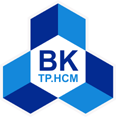PdCu alloy nanoparticles on alumina as selective catalysts for trichloroethylene hydrodechlorination to ethylene
Authors: Beteley T. Meshesha, Noelia Barrabés, Jordi Llorca, Anton Dafinov, Francisco Medina, Karin Föttinger
Abstract:
PdCu bimetallic catalysts supported on alumina were prepared by different common impregnation protocols and by a polyol nanoparticles synthesis route. These materials were studied in order to establish the relationship between structure, particle size, Pd–Cu interaction and catalytic activity/selectivity in the hydrodechlorination of trichloroethylene (TCE) in gas phase. The surface properties and the interaction between Cu and Pd in the bimetallic particles, as well as their catalytic behaviour are strongly influenced by the preparation protocol. Depending on the synthesis, PdCu alloy formation or isolated phases were observed. The presence of isolated Pd particles leads to high ethane selectivity, whereas upon alloy formation or strong interaction between Pd and Cu a higher ethylene yield was obtained. By the nanoparticles polyol synthesis, Pd-Cu alloy formation was obtained, leading to total selectivity to ethylene in the TCE hydrodechlorination reaction. On the Pd monometallic catalysts larger particle size resulted in higher levels of ethylene formation.
Keywords:
PdCu bimetallic catalyst
Nanoparticles
Alloy
High resolution
TEM
Temperature-programmed reduction
Published in: Applied catalysis A: General (Volume 453, Pages 1-402, 26 February 2013)
Publisher: Elsevier
ISSN Information: 0926-860X
PdCu alloy nanoparticles on alumina as selective catalysts for trichloroethylene hydrodechlorination to ethylene
- Ngày hội Văn hóa đọc lần VI
- Vòng Sơ Khảo Cuộc Thi Đại Sứ Văn Hóa Đọc Năm 2024
- Ngày hội sách “CITTADELLA” khuyến khích và tôn vinh vai trò của sách trong sinh viên Bách khoa
- Cuộc Thi Ảnh “Khoảnh Khắc VNUHCM Libraries”
- Ngày hội văn hóa đọc lần V
- Ngày hội văn hóa đọc lần II
- Ngày hội văn hóa đọc lần IV
- Ngày hội văn hóa đọc lần III
- Tiếp GS Omer Mert Denizci, Trường ĐH Marmara Thổ Nhĩ Kỳ
- Tiếp Cô Claudia Tarzariol Từ The University Of Trento, Italy (Unitrento)
- Tiến sĩ kiều bào Mỹ tặng sách trị giá 150.000 USD cho sinh viên bách khoa
- Khảo sát ý kiến bạn đọc
-
Trực tuyến:8
-
Hôm nay:271
-
Tuần này:3034
-
Tuần trước:35602
-
Tháng trước:35873
-
Tất cả:4057769




.png)












.png)